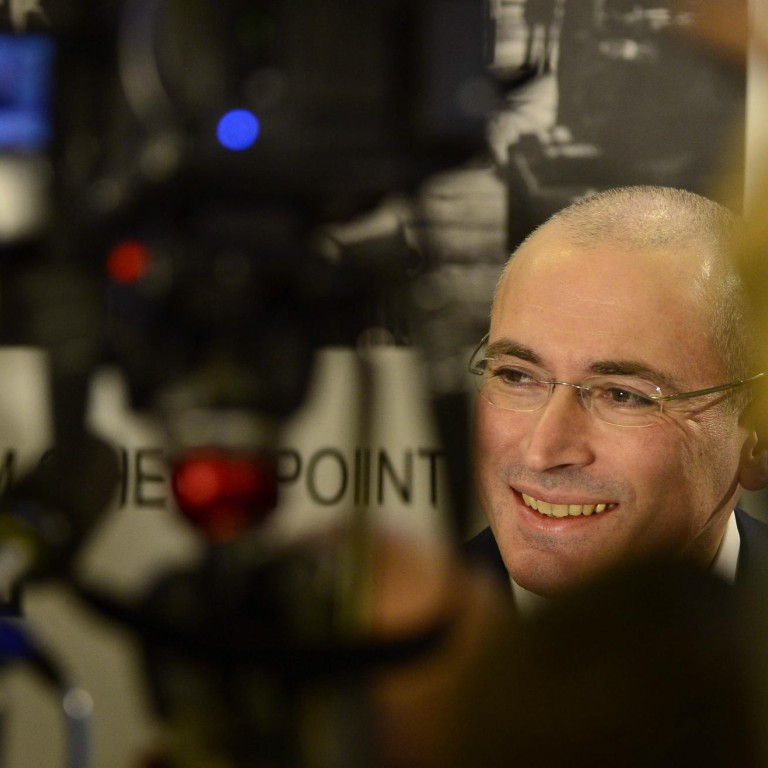
Freed Khodorkovsky vows to stay out of Russian politics
Freed Khodorkovsky tells journalists in Berlin that he has no intention to return to business or politics, and he fears going back to Russia
Kremlin critic Mikhail Khodorkovsky yesterday revealed he had no choice about his end destination of Germany after he was released from jail, also telling Western leaders that other "political prisoners" remained in Russian jails.
"I had no choice at the stage of my release," he said at his first open news conference in Berlin, saying he only learnt he would be going to Germany during his transfer.
"Many facts of my release are still unknown to me," he added, speaking 36 hours after he was released from jail in northwestern Russia.
He added that Western governments should "remember I am not the last political prisoner in Russia".
The former chief executive and founder of the Yukos oil giant said he had no plans to return to business but had enough means to live on.
Video: Khodorkovsky holds Berlin press conference after release
He thanked German Chancellor Angela Merkel for working on his release. He said that he had been granted a German visa for one year but had not decided on his future travel plans.
"[Angela Merkel] made it possible for me to be free today," he said at the news conference at the Berlin Wall museum at the symbolic Cold War location of Checkpoint Charlie.
Khodorkovsky said that owing to a lawsuit for over half a billion US dollars in damages stemming from his 2005 conviction, there was "no guarantee" that if he returned to Russia he would ever be allowed to leave again.
Asked about his relationship with Russian President Vladimir Putin, Khodorkovsky refused to be drawn into expressing hatred towards the Russian strongman. He said that while he had been treated harshly "my family had never been touched".
He said he was against a boycott of the Sochi Winter Olympics in February, saying a "festival of sport should not be spoilt". But he acknowledged it should not become a "festival of Vladimir Putin".
Khodorkovsky revealed he had made clear his intention to stay out of politics in his request for a pardon.
"I wrote in my papers what I have repeatedly said publicly: I am not going into politics and not going to fight for the return of Yukos assets," he told the opposition magazine .
Khodorkovsky indicated that Moscow had wanted him out of the country and said he would not return home until he was certain he could leave again in full security.
"From an objective point of view, I will return only if I am certain that I will be able to leave when necessary," he told the magazine.
"Our authorities can honestly say that they did not send me into exile and that I asked for it. But knowing our realities, we can absolutely precisely understand that they wanted me out of the country," he said.
Putin's spokesman said he was free to come back. "He is free to return to Russia. Absolutely," Dmitry Peskov said.
Khodorkovsky's extraordinary release was worked out behind the scenes with the German government and came about after negotiations between German former foreign minister Hans-Dietrich Genscher and President Putin.
In a separate interview with the Dozhd television channel, Khodorkovsky said Putin wanted him to admit guilt, something he said was unacceptable to him.
He said it was Genscher who suggested that he turn to Putin for a pardon on humanitarian grounds, citing his mother's ill health.
Khodorkovsky, widely seen as Russia's most famous post- Soviet inmate, was jailed for financial crimes. He had been due for release in August.
Putin announced on Thursday that his opponent had turned to him for a pardon on humanitarian grounds.
